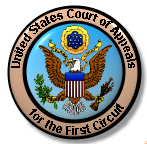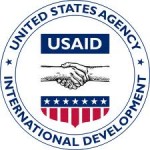 Fluor Hanford (“Fluor”), a company contracted by the U.S. Department of Energy to train federal emergency management personnel, will pay $1.1 million to resolve claims that it defrauded the government by using appropriated money to lobby the federal government for yet more funding in violation of the False Claims Act. Fluor operated the Hanford Training Center (the “HAMMER” center) under contract with the Department of Energy from 1996 to 2009, and the alleged fraudulent lobbying occurred from 2005 to 2008. Fluor has denied violating any representations made to the government in order to secure the contract and further denies violating federal ethics laws. Initially, according to the government’s False Claims Act complaint, Fluor focused on expanding the scope of its operation by marketing the training center to regional first responders such as the Seattle Fire Department. When these efforts proved inadequate to increase the profitability of the training facility, Fluor hired two lobbying firms, Congressional Strategies and Secure Horizons Consulting, to promote the HAMMER center. The government alleged that these consulting firms lobbied members of Congress and federal agencies to increase appropriations in agencies’ budgets for HAMMER. The consulting firms were paid substantial sums for their services; documents filed in the case show that Congressional Strategies was paid $398, 164, while Secure Horizons was paid $278,148.
Fluor Hanford (“Fluor”), a company contracted by the U.S. Department of Energy to train federal emergency management personnel, will pay $1.1 million to resolve claims that it defrauded the government by using appropriated money to lobby the federal government for yet more funding in violation of the False Claims Act. Fluor operated the Hanford Training Center (the “HAMMER” center) under contract with the Department of Energy from 1996 to 2009, and the alleged fraudulent lobbying occurred from 2005 to 2008. Fluor has denied violating any representations made to the government in order to secure the contract and further denies violating federal ethics laws. Initially, according to the government’s False Claims Act complaint, Fluor focused on expanding the scope of its operation by marketing the training center to regional first responders such as the Seattle Fire Department. When these efforts proved inadequate to increase the profitability of the training facility, Fluor hired two lobbying firms, Congressional Strategies and Secure Horizons Consulting, to promote the HAMMER center. The government alleged that these consulting firms lobbied members of Congress and federal agencies to increase appropriations in agencies’ budgets for HAMMER. The consulting firms were paid substantial sums for their services; documents filed in the case show that Congressional Strategies was paid $398, 164, while Secure Horizons was paid $278,148.
The government claimed that Fluor certified it would not use any taxpayer funds for lobbying purposes, and thus claims for payment pursuant to its contract with the Department of Energy violated the False Claims Act. Companies seeking to secure government contracts must agree to abide by a whole host of conditions and certify compliance with a constellation of federal laws in order to be awarded any contract. Under the False Claims Act, a government contractor may be liable when seeking reimbursement in a number of contexts: defective performance, failure to perform according to specifications set out in the contract or otherwise provided for by law, or non-compliance with other federal statutes and regulations (such as federal ethics laws). In this case, the government alleges that Fluor Hanford expressly certified as a condition of the contract that it would not use appropriated funding to lobby for additional congressional appropriations, and thus claims for payment pursuant to the Department of Energy contract constitute false claims under the False Claims Act.
The False Claims Act imposes liability when a person submits a false claim for payment to the government or when a false claim is submitted to reduce or eliminate a liability owed to the government. Moreover, the knowing retention of overpayments can also trigger False Claims Act liability. When a relator files a complaint, the government may review the allegations and elect to intervene in the litigation; however, the government does not always do so. Even if the government does not intervene, a relator may proceed privately. If successful, relators stand to recover between 15% and 30% of any final judgment or settlement. In the year 2012 alone, the United States saw a record $5 billion in False Claims Act recoveries. The Act allows for civil penalties of as much as $11,000 per violation in addition to trebling of damages.
 Whistleblower Attorneys Blog
Whistleblower Attorneys Blog







